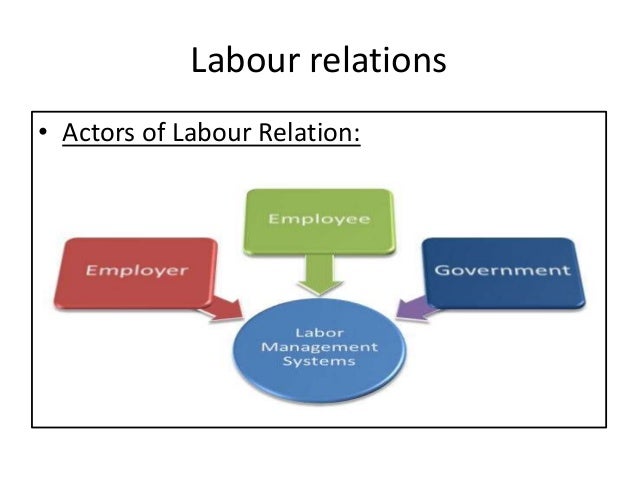
You need time management skills to get things done and stick to a plan. Whether you're a student, a working professional, or someone who is looking to improve your job search, time management skills are essential. Time management allows you to plan your work and allocate time each day for your goals. It allows you to manage your time and tasks, so you don’t get caught up in last-minute scrambling. You can also use time management skills to stay on top of projects, prioritize tasks, and set deadlines.
Making a schedule
For effective time management, it is important to be able create a plan. It helps you see what tasks you need and when they must be completed. It allows you to identify which tasks will require more effort and the time it will take to complete them. Your ability to plan and prioritize can be improved by keeping your schedule current. It's very helpful to create a schedule that is detailed for planning and organizing your day.

Prioritizing tasks
Prioritizing tasks is key to time management. This means that you should determine a list of what must be done, and then allocate your time accordingly. If you are preparing a presentation for a group, it is a good idea to place this task at top of your list. You should also assess the tasks' value so you can decide what to do first.
Setting deadlines
One of the most basic time management skills is setting deadlines. This allows you to monitor your time and pinpoint what needs to get done before it is too late. To help you decide what deadlines to meet and how long it will take to complete the task, previous projects can be used. It's important that you recognize that some time management methods may not work for your particular type of work.
Creating a system
A system to help you manage your time can help keep you on track and allow you to prioritize. It may help to write down the three most important things you need to get done in a day. It is important that you remember that every system takes time. A virtual assistant or other team members can help you get started on your system. Once you have the system in place, you can use reminders to remind yourself of what you need to do on your computer, phone or watch.
Create SMART goals
It is possible to make your life more efficient by using SMART Goals. They must be relevant, achievable, time-bound and suitable for your situation. Time-bound goals refer to the specific date and time by which you must complete the goal. To meet your deadline, you should stay focused and not drift from your original goals. SMART objectives will help manage your time better and help reach your goals.

Embracing your flaws
To live a fulfilled and productive life, it is important to accept your flaws. Accepting and embracing your imperfections can help you make better decisions and improve your self-esteem. You will also gain a better perspective on life and yourself. While flaws do not make you a bad person, they can be a blessing. You will be able to manage your time more effectively if you accept your flaws.
FAQ
What are management concepts, you ask?
Management concepts are the practices and principles managers use to manage people or resources. They cover topics such as job descriptions and performance evaluations, human resource policies, training programs, employee motivation, compens systems, organizational structure, among others.
What are the steps to take in order to make a management decision?
Managers face complex and multifaceted decision-making challenges. This involves many factors including analysis, strategy and planning, implementation, measurement and evaluation, feedback, feedback, and others.
Management of people requires that you remember that they are just as human as you are, and can make mistakes. As such, there is always room for improvement, especially if you're willing to put forth the effort to improve yourself first.
This video explains the process of decision-making in Management. We will discuss the various types of decisions, and why they are so important. Every manager should be able to make them. The following topics will be covered.
What are the five management steps?
These five stages are: planning, execution monitoring, review and evaluation.
Setting goals for the future requires planning. This includes setting goals for the future and defining what you want.
Execution happens when you actually do the plan. You need to make sure they're followed by everyone involved.
Monitoring is the act of monitoring your progress towards achieving your targets. Regular reviews of performance against budgets and targets should be part of this process.
Reviews take place at the end of each year. They are a chance to see if everything went smoothly during the year. If not, then it may be possible to make adjustments in order to improve performance next time.
After the annual review, evaluation takes place. It helps to identify what went well and what didn’t. It also gives feedback on how well people did.
Statistics
- Hire the top business lawyers and save up to 60% on legal fees (upcounsel.com)
- This field is expected to grow about 7% by 2028, a bit faster than the national average for job growth. (wgu.edu)
- The profession is expected to grow 7% by 2028, a bit faster than the national average. (wgu.edu)
- UpCounsel accepts only the top 5 percent of lawyers on its site. (upcounsel.com)
- 100% of the courses are offered online, and no campus visits are required — a big time-saver for you. (online.uc.edu)
External Links
How To
How can you create a Quality Management Plan, (QMP)?
The Quality Management Plan (QMP) was established in ISO 9001. It is a systematic way to improve processes, products and services. It focuses on the ability to measure, analyze and control processes and customer satisfaction.
QMP stands for Quality Management Process. It is used to guarantee good business performance. The QMP aims to improve the process of production, service delivery, and customer relationship. QMPs should encompass all three components - Products and Services, as well as Processes. When the QMP includes only one aspect, it is called a "Process" QMP. When the QMP focuses on a Product/Service, it is known as a "Product" QMP. The QMP that focuses on customer relationships is known as the "Customer" QMP.
Scope is the most important element in implementing a QMP. Strategy is the second. These are the following:
Scope: This determines the scope and duration of the QMP. For example, if you want to implement a QMP that lasts six months, then this scope will outline the activities done during the first six.
Strategy: This is the description of the steps taken to achieve goals.
A typical QMP includes five phases: Design, Planning, Development and Implementation. Below is a description of each phase:
Planning: This stage identifies and prioritizes the QMP's objectives. To get to know the expectations and requirements, all stakeholders are consulted. The next step is to create the strategy for achieving those objectives.
Design: The design stage involves the development of vision, mission strategies, tactics, and strategies that will allow for successful implementation. These strategies are executed by creating detailed plans.
Development: Here, the team develops the resources and capabilities that will support the successful implementation.
Implementation: This is the actual implementation and use of the QMP's planned strategies.
Maintenance: This is an ongoing procedure to keep the QMP in good condition over time.
Additionally, the QMP should include additional items:
Stakeholder Involvement: Stakeholders are important for the success of the QMP. They must be involved in all phases of the QMP's development, planning, execution, maintenance, and design.
Project Initiation: It is essential to have a clear understanding about the problem and the solution before you can initiate a project. In other words, they must understand the motivation for initiating the project and the expectations of the outcome.
Time frame: It is crucial to know the time frame for the QMP. The simplest version can be used if the QMP is only being implemented for a short time. However, if you have a long-term commitment, you may require more elaborate versions.
Cost Estimation - Cost estimation is an important part of the QMP. You can't plan without knowing how much money it will cost. Therefore, cost estimation is essential before starting the QMP.
QMPs are not just a written document. They should be a living document. It can change as the company grows or changes. So, it should be reviewed periodically to make sure that it still meets the needs of the organization.